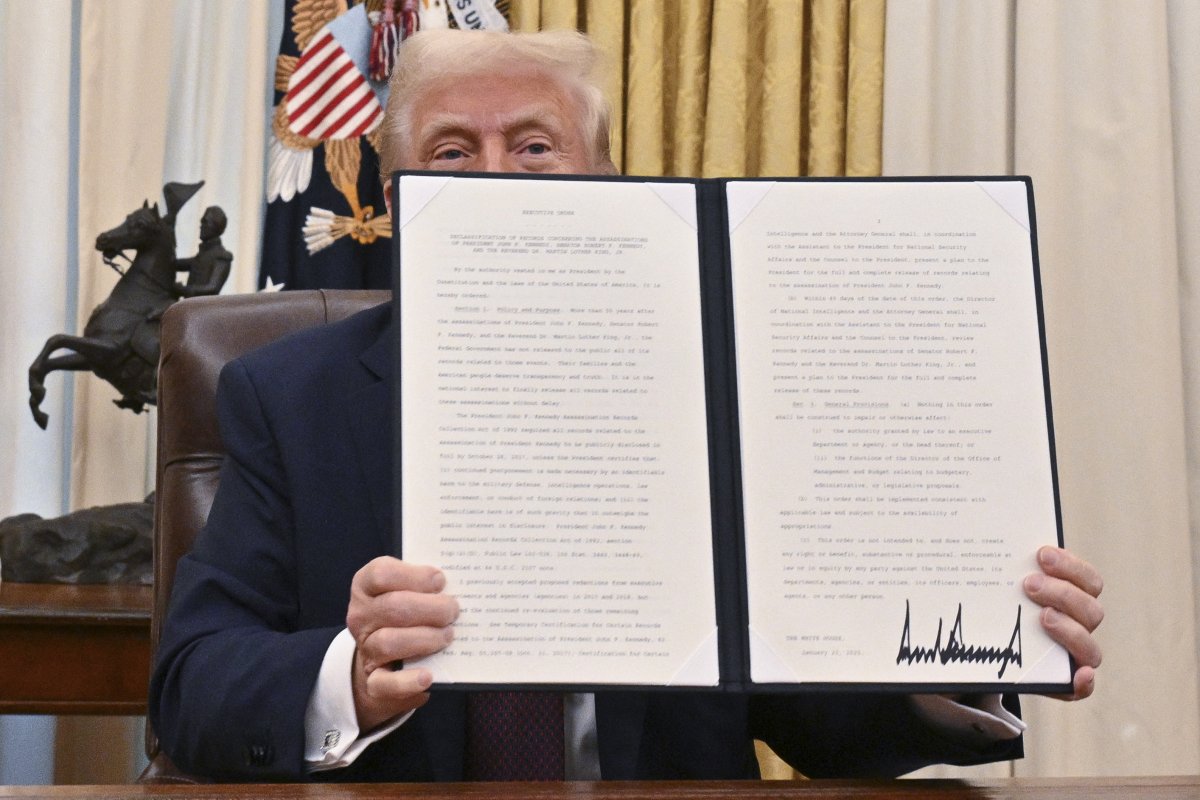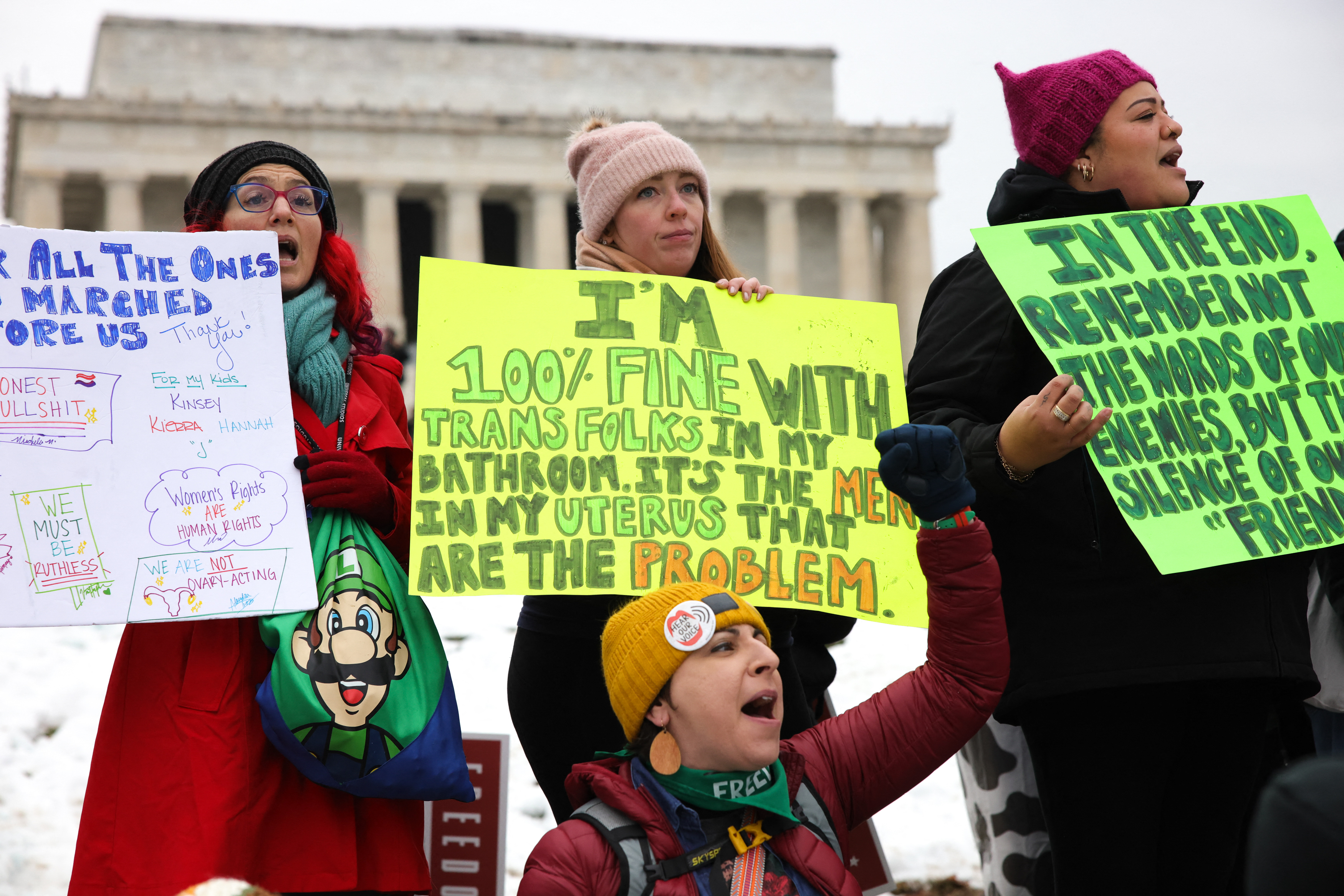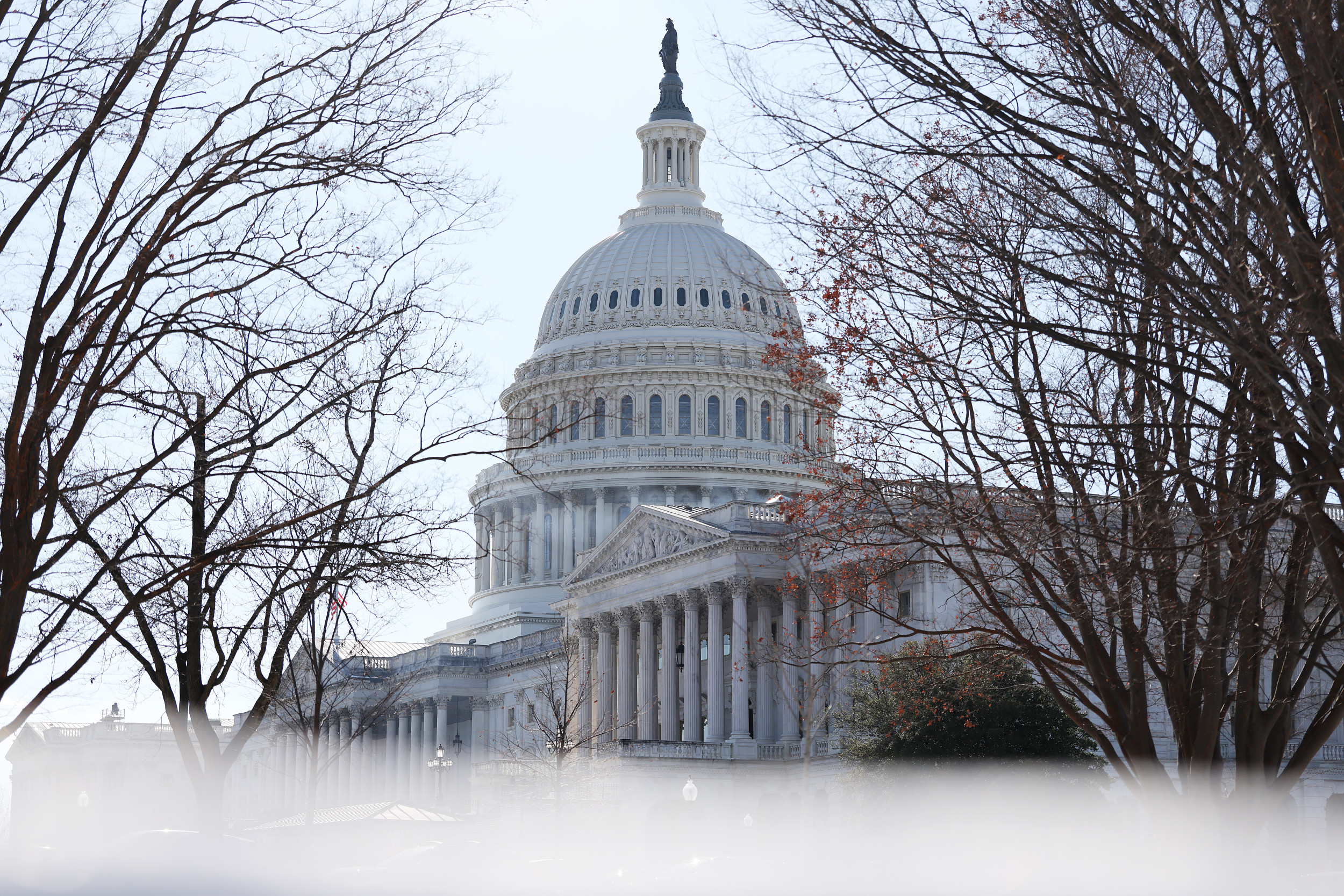President Donald Trump has signed a controversial executive order ending birthright citizenship for certain children born in the U.S.
On Thursday a federal judge temporarily blocked Trump's executive order, calling it "blatantly unconstitutional."
Newsweek has contacted President Donald Trump's communications teams for comment via email.
Why It Matters
The lawsuit is one of more than seven cases filed against Trump or his administration since he took office. Eighteen states and two cities are also suing the president in a separate case, claiming his executive order is unconstitutional.
Ending birthright citizenship for children of undocumented immigrants has become a key part of the administration's tough immigration agenda.

What Is Birthright Citizenship?
Birthright citizenship is the legal right of individuals born in a country to acquire citizenship regardless of their parents' nationality or legal status.
The Constitution states: "All persons born or naturalized in the United States, and subject to the jurisdiction thereof, are citizens of the United States and of the state wherein they reside. No State shall make or enforce any law which shall abridge the privileges or immunities of citizens of the United States; nor shall any State deprive any person of life, liberty, or property, without due process of law; nor deny to any person within its jurisdiction the equal protection of the laws."
The 14th Amendment guarantees citizenship to anyone born on U.S. soil, a principle affirmed by the Supreme Court in the landmark 1898 case United States v. Wong Kim Ark. In this ruling, the Court established that a man born in San Francisco to Chinese parents was entitled to U.S. citizenship, creating a precedent that has influenced immigration law ever since.
What does Trump's executive order say?
The executive order instructs government agencies to stop issuing citizenship documentation to babies born in the U.S. unless at least one parent is a U.S. citizen or permanent resident. It seems to specifically target children of undocumented immigrants and those with parents on temporary visas.
It says: "The Fourteenth Amendment has never been interpreted to extend citizenship universally to everyone born within the United States. The Fourteenth Amendment has always excluded from birthright citizenship persons who were born in the United States but not "subject to the jurisdiction thereof." Consistent with this understanding, the Congress has further specified through legislation that "a person born in the United States, and subject to the jurisdiction thereof" is a national and citizen of the United States at birth, 8 U.S.C. 1401, generally mirroring the Fourteenth Amendment's text.
"Among the categories of individuals born in the United States and not subject to the jurisdiction thereof, the privilege of United States citizenship does not automatically extend to persons born in the United States: (1) when that person's mother was unlawfully present in the United States and the father was not a United States citizen or lawful permanent resident at the time of said person's birth, or (2) when that person's mother's presence in the United States at the time of said person's birth was lawful but temporary (such as, but not limited to, visiting the United States under the auspices of the Visa Waiver Program or visiting on a student, work, or tourist visa) and the father was not a United States citizen or lawful permanent resident at the time of said person's birth.
"It is the policy of the United States that no department or agency of the United States government shall issue documents recognizing United States citizenship, or accept documents issued by State, local, or other governments or authorities purporting to recognize United States citizenship, to persons: (1) when that person's mother was unlawfully present in the United States and the person's father was not a United States citizen or lawful permanent resident at the time of said person's birth, or (2) when that person's mother's presence in the United States was lawful but temporary, and the person's father was not a United States citizen or lawful permanent resident at the time of said person's birth."
Why has a judge blocked the executive order?
The lawsuit from Washington, Arizona, Illinois, and Oregon says the president "has no authority to amend the Constitution or supersede the Citizenship Clause's grant of citizenship to individuals born in the United States."
It continues: "Nor is he empowered by any other constitutional provision or law to determine who shall or shall not be granted United States citizenship at birth."
A temporary restraining order preventing Trump from carrying out his order was granted by U.S. District Judge John Coughenour.
Coughenour, who was appointed to the federal judiciary by President Ronald Reagan, didn't mince his words. "I've been on the bench for over four decades," he said. "I can't remember another case where the question presented is as clear as this one. This is a blatantly unconstitutional order."
"I have difficulty understanding how a member of the bar could state unequivocally that is a constitutional order," Coughenour told a lawyer representing the Trump administration, according to Washington State Standard. "It boggles my mind."
The outlet reported that Coughenour made his ruling after less than half an hour of arguments from Trump administration and Washington state's lawyers.
Will the executive order go ahead?
While executive orders can be reversed by future presidents, amending the Constitution requires bipartisan support.
Ending birthright citizenship through a constitutional amendment would be a complex process, if an executive order alone won't suffice. To propose an amendment, a two-thirds majority vote in both the House and Senate is needed, followed by ratification from 38 state legislatures.
The U.S. Supreme Court is likely to review Trump's executive order on birthright citizenship.
Despite the court's 6-3 conservative majority, including three justices appointed by Trump, most legal experts believe the clear language of the Fourteenth Amendment makes it difficult for the executive order to withstand legal challenges.




















 English (US) ·
English (US) ·